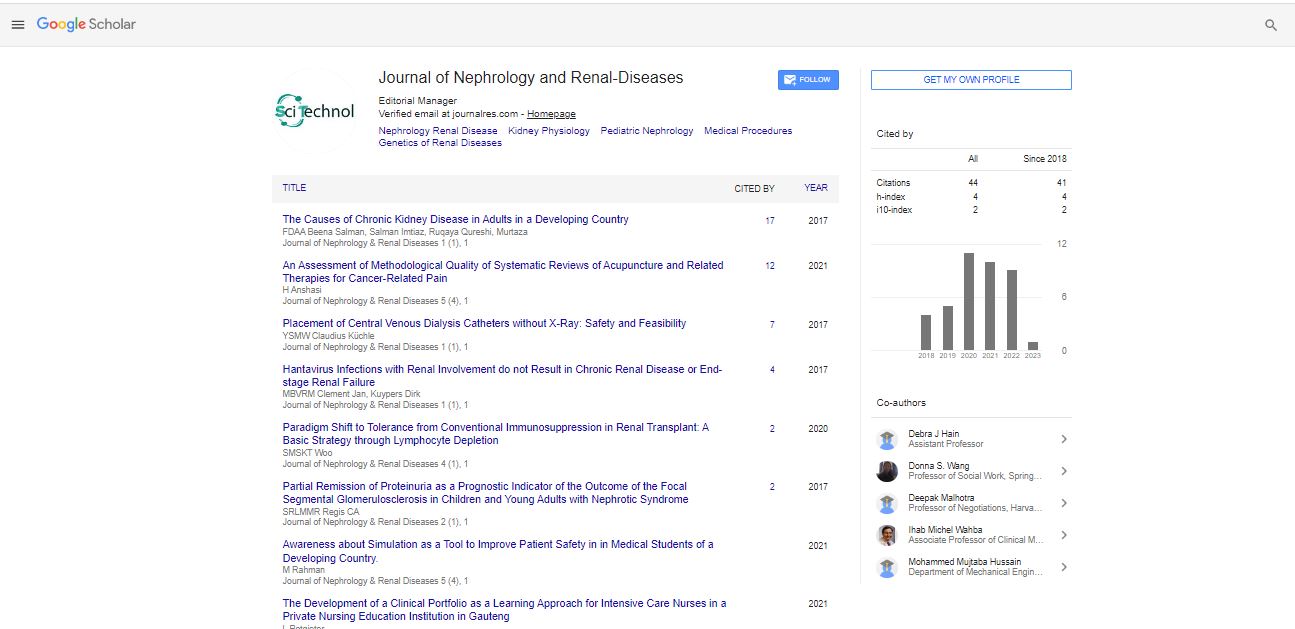Employment status of patients with ESRD and the subsequent treatment modalities in the United States
John D Sullivan
Boston University, USA
: J Nephrol Ren Dis
Abstract
End stage renal disease impacts the lives of over 700,000 Americans and their families. Despite the cost of supporting such a chronic condition, the United States initiated a system whereby everyone would be covered that qualifies for social security benefits, regardless of age. However, over three decades, the dialysis via two large provider chains (one fully integrated) took over and led the patients ultimately to a choice of hemodialysis in the out-patient setting without a somewhat technological option of home hemodialysis or peritoneal dialysis. This may have occurred as a result of medical training although the system is structured more on a corporate basis. That said, patients seem to be driven towards outpatient hemodialysis over other options such as haemodialysis and peritoneal dialysis. The result has created an economic system that has shifted toward what is perceived as the lowest cost of care without consideration for other treatment modalities that promote a better quality of life for the patient as well as monetary benefits for the United States Government. From a purely economic standpoint, profitability for providers is in the out-patient clinics despite the initial investment of $1-2 million via fixed asset utilization and the variable cost of peritoneal dialysis as well as the supply costs needed for home hemodialysis. In other words, for these two treatment modalities, the margin, if any, is built into the treatment. Margins can be enhanced through the utilization of incentre facilities. With the focus on this modality, there are economic impacts based on decisions that increase the overall expenditures to the entire system that can easily be avoided.
Biography
John D Sullivan is an expert in health care finance, law, and policy, as well as mergers and acquisitions and asset valuation. He has taught at Boston University’s Metropolitan College for over 25 years, and served as chair of the Department of Administrative Sciences since 2015. Prior to joining BU, he worked as a bond analyst specializing in high yield corporate debt and business development, overseeing the acquisitions and valuations of over 100 transactions totaling $1.5 billion for W.R. Grace. In 2008, He co-founded Reliant Renal Care with $50 million in private equity funding. He was granted a faculty position in the BU School of Law in 2012, teaching International Transaction and Merger Law for the LLM Program. From 2014 to 2016, he was a research fellow with the United States Department of State’s Office of Threat Counterterrorism and Office of Threat Finance Countermeasures. He has served on multiple boards of directors and consulted for numerous large health care companies across the United States.
E-mail: jsulliva@bu.edu
 Spanish
Spanish  Chinese
Chinese  Russian
Russian  German
German  French
French  Japanese
Japanese  Portuguese
Portuguese  Hindi
Hindi 
